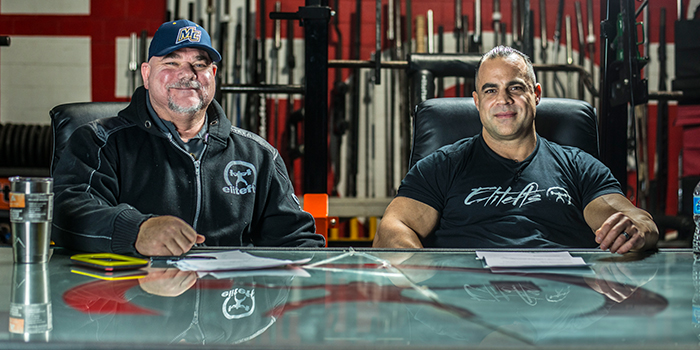
In an ideal world, the only stressors that affect your progress as a strength athlete are those you expose yourself to in the gym. If you can control your volume, intensity, frequency, exercise selection, and every other aspect of your programming, you control the stressors and thus control your progress.
But that's not the real world. In the real world, there are stressors you don't control — and they happen outside of the gym. What happens when you have a physically or mentally demanding job? For today's Table Talk, Mark Dugdale and Dave Tate answer a question about work stress and the effect it can have on training.
How can you balance powerlifting/bodybuilding training with a physically demanding full-time job and still recover?
Dave begins by pointing out an aspect of stress that most people overlook: whether its physical stress or mental stress, your body is going to react in mostly the same way. For Mark, his work exposes him to mental or emotional stress far more than it does physical stress. So how does he deal with it? He does yoga three times per week and finds way to "unplug" from the mental stress. Unlike most forms of physical stress, however, Mark says that training often is his form of unplugging. He acknowledges that this will work very differently for someone who is struggling with physical stressors.
Dave's first point of advice for these lifters is to focus on hydration. If you're working a very physical job and then going to the gym at the end of the day, your body is going to need as much water and proper nutrition as possible to fully recover and still perform its best in training. If you're already doing this and still having problems, Dave suggests taking a step back from training and incrementally adding back volume, intensity, and frequency until you find the point that your body can't recover. This will give you an idea of what your body's true recovery capacity is.










